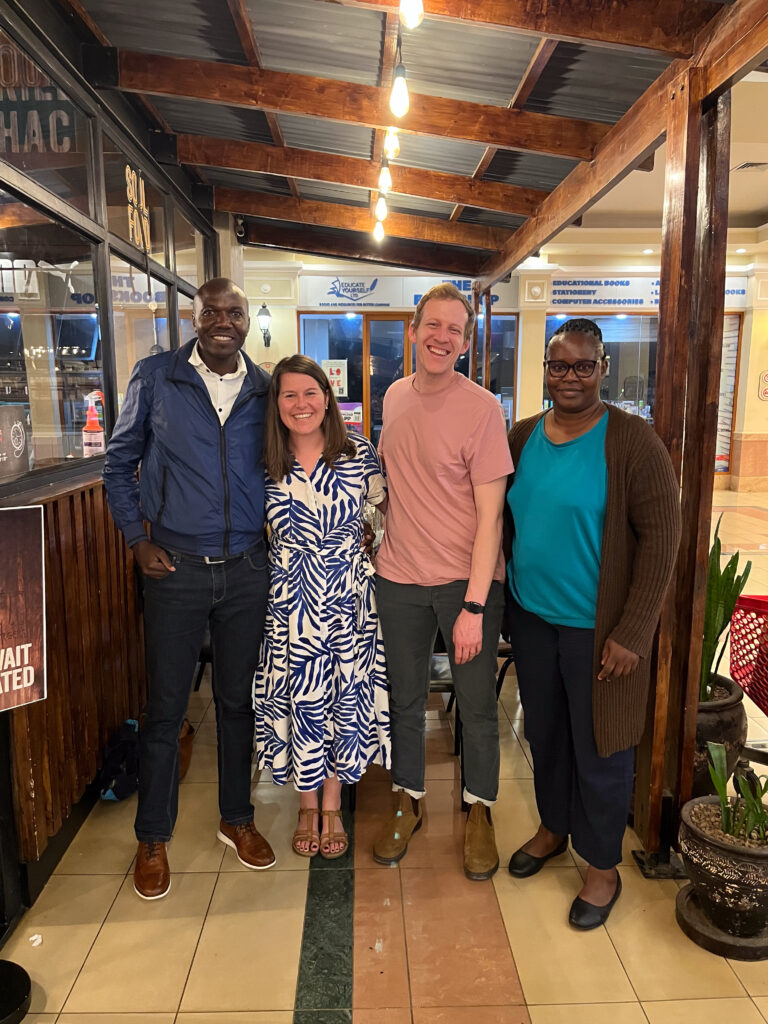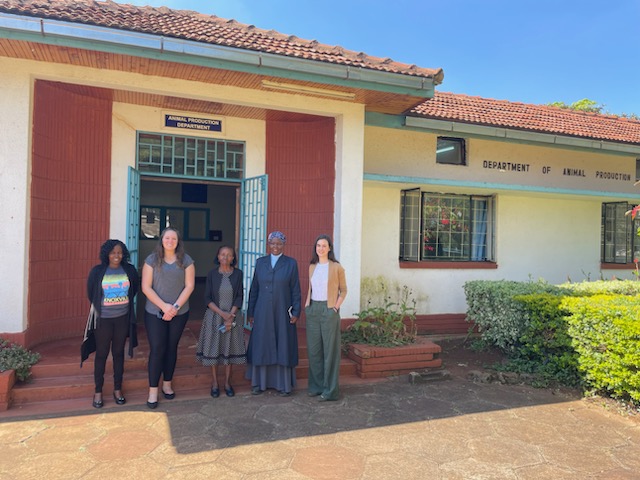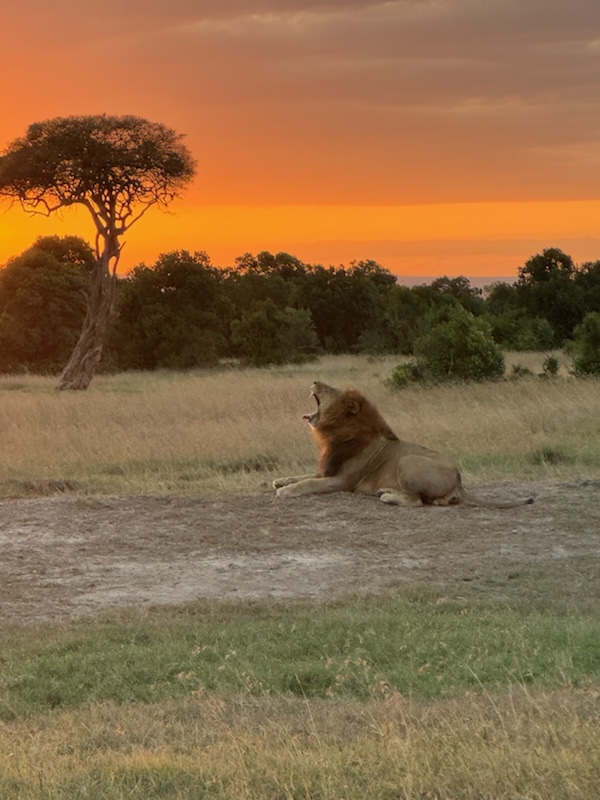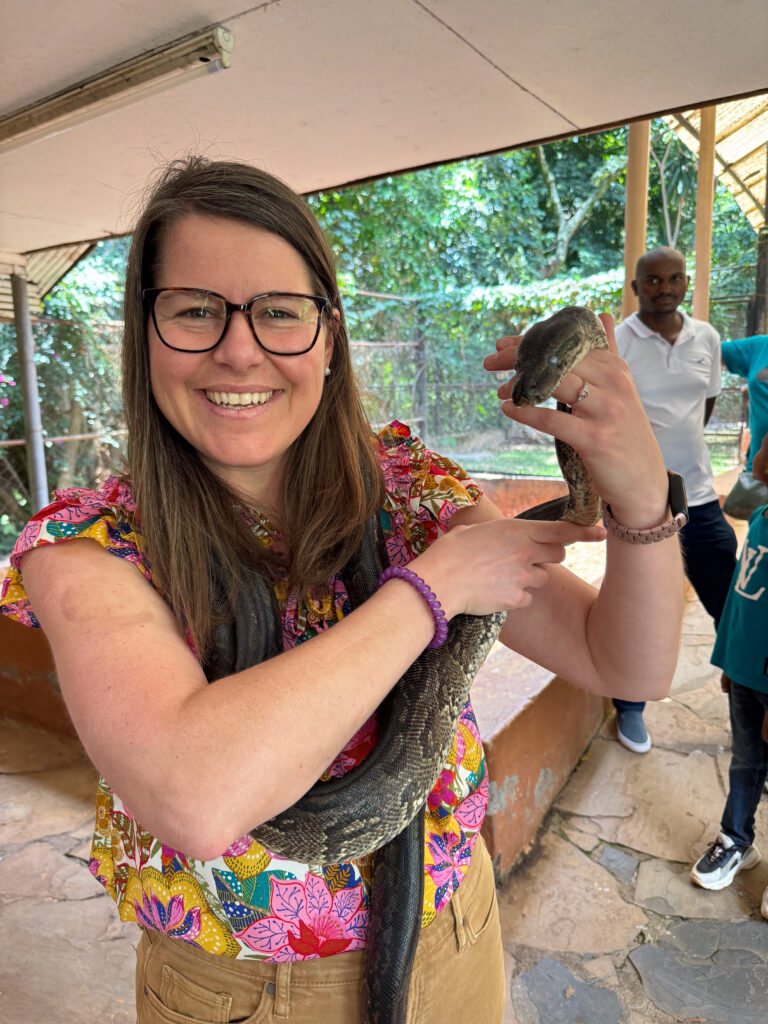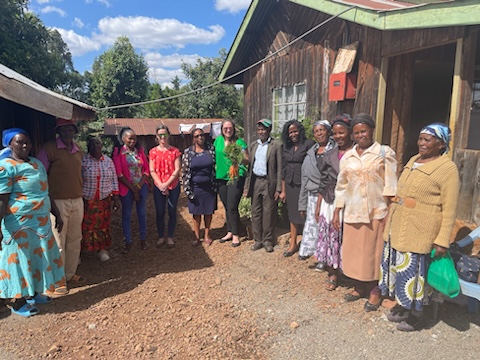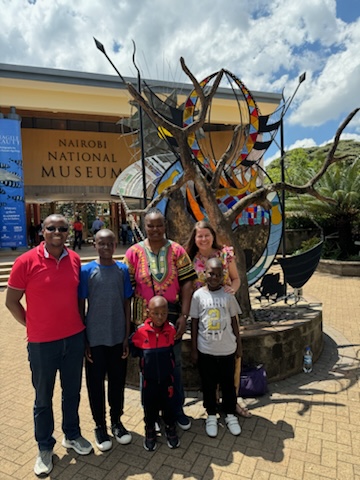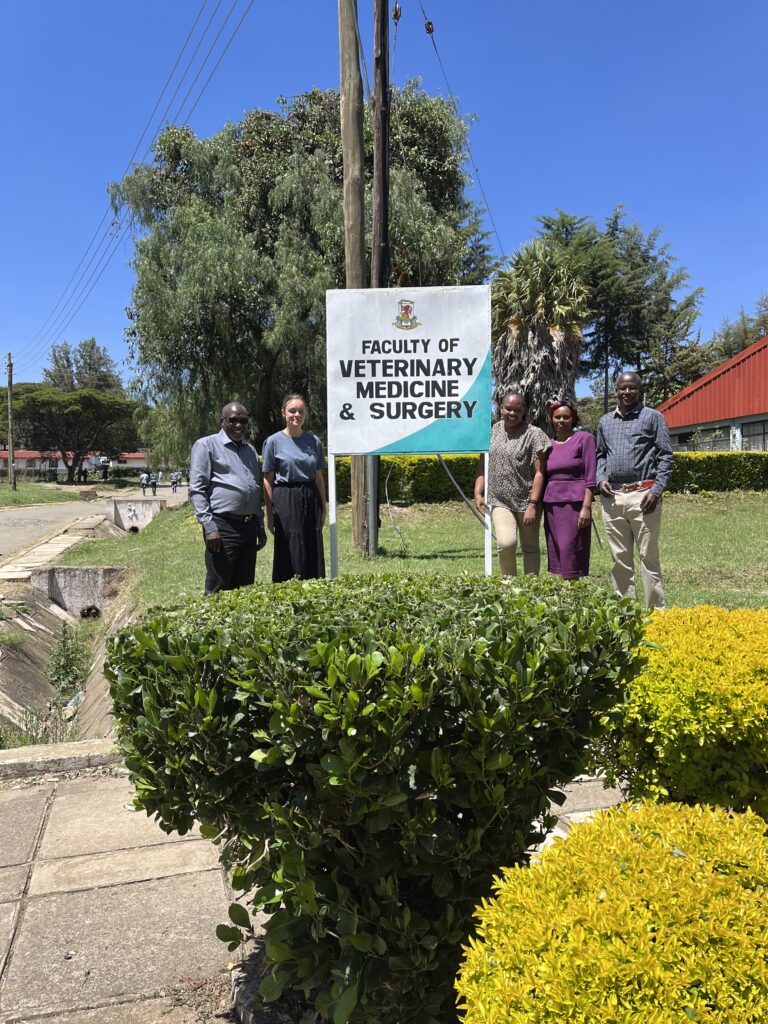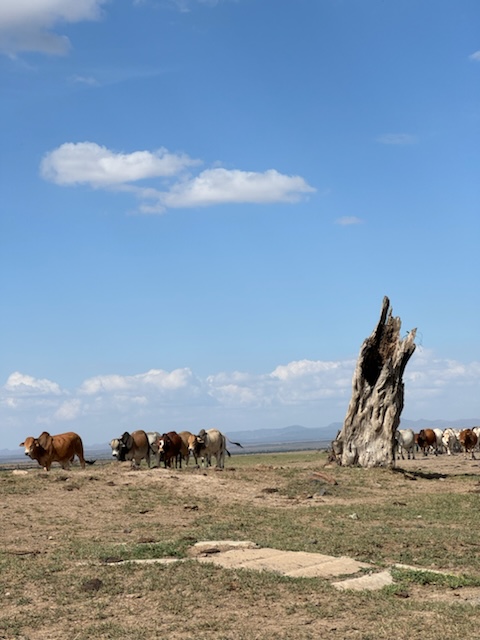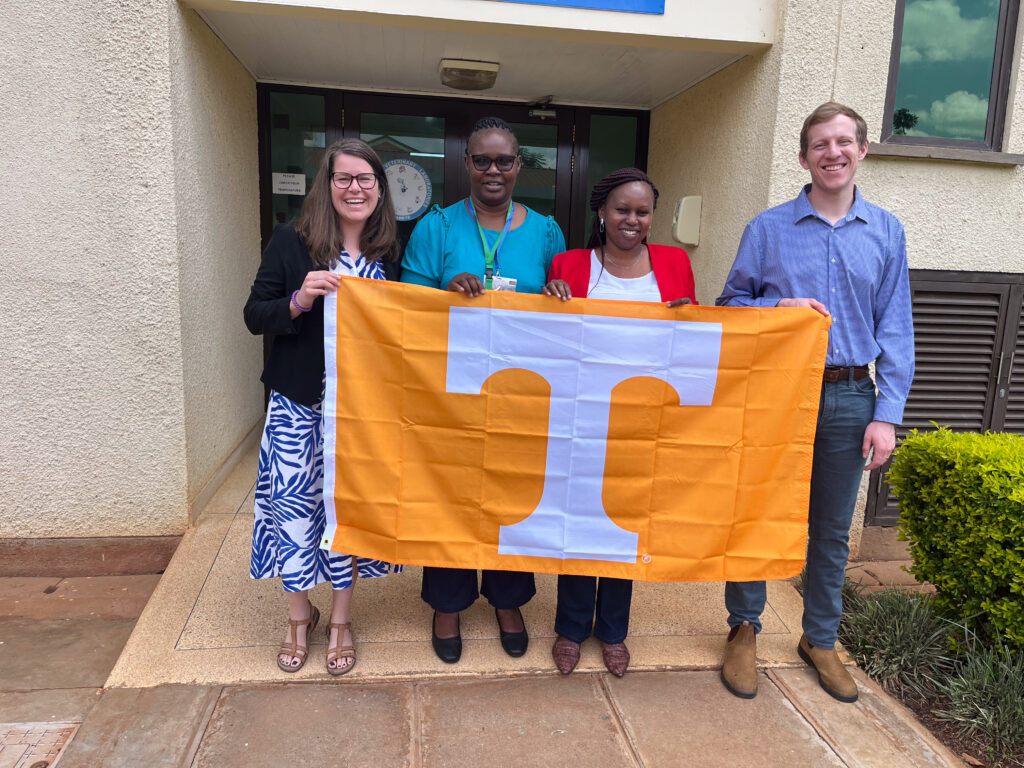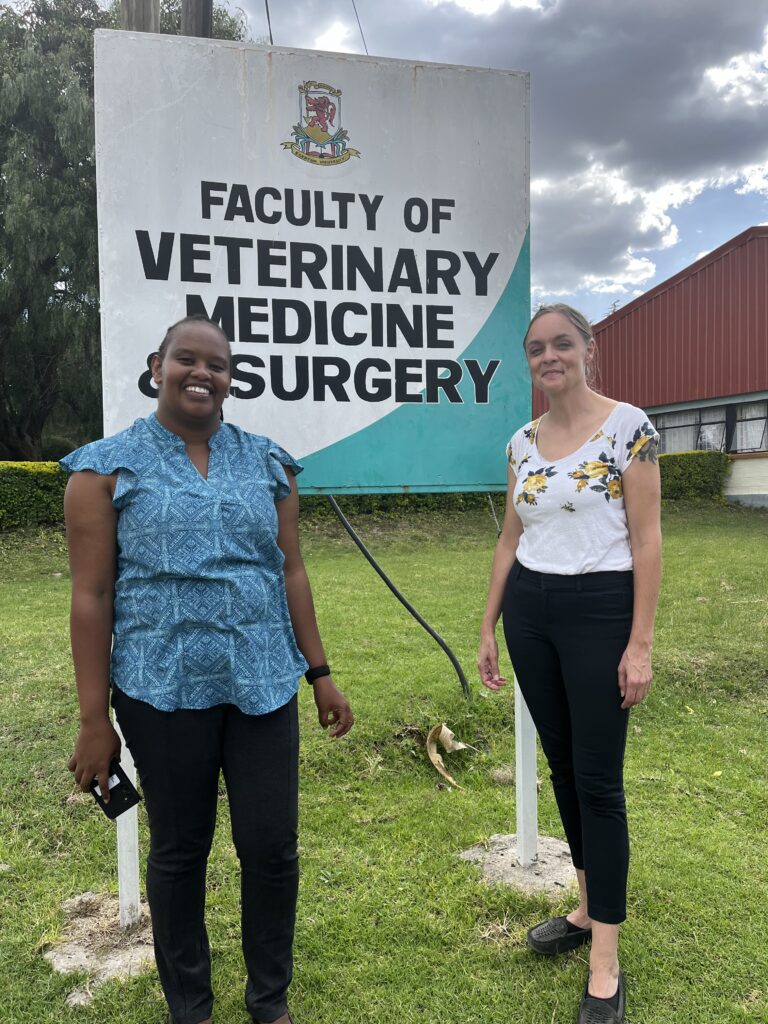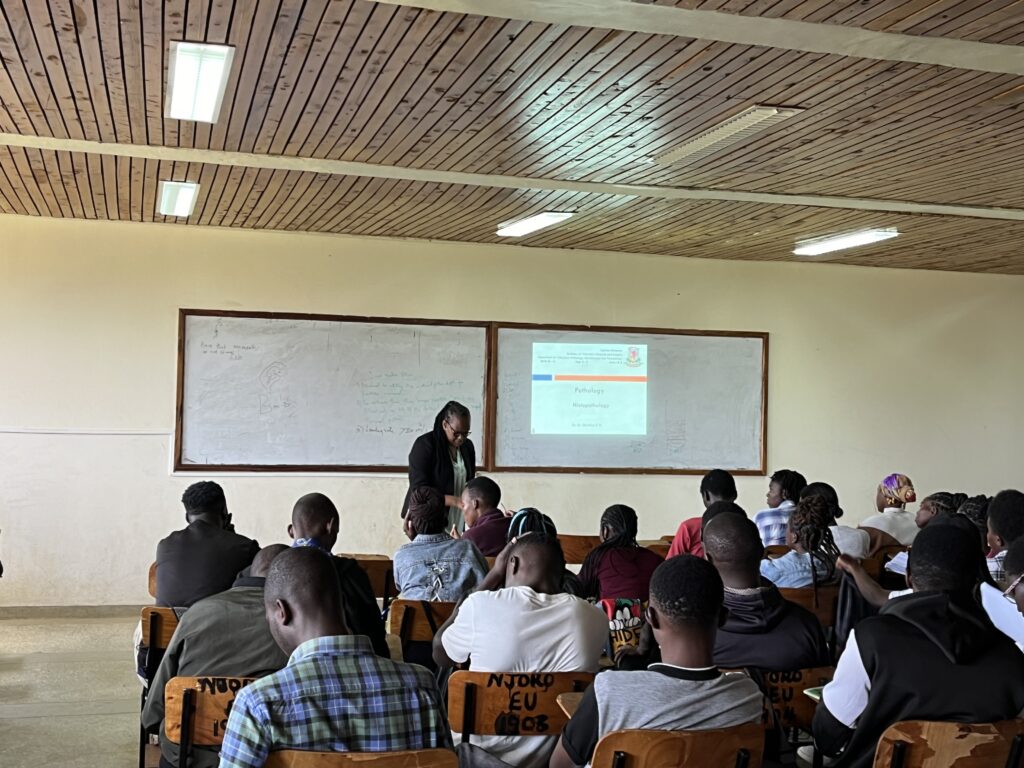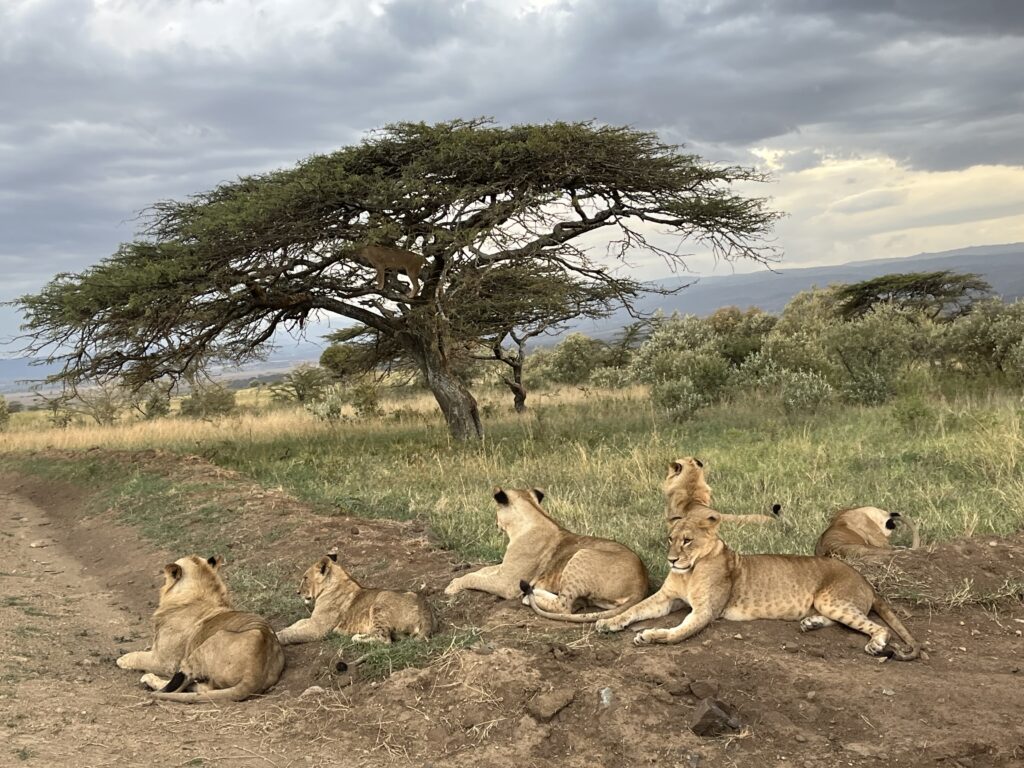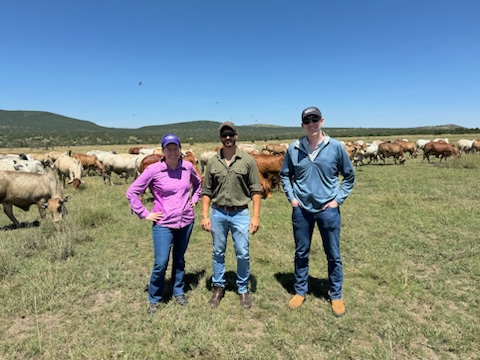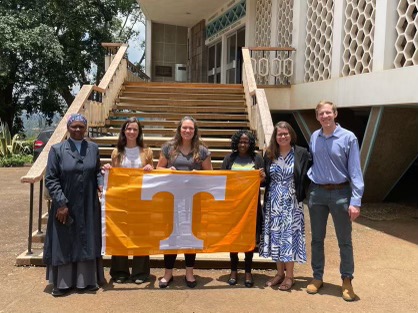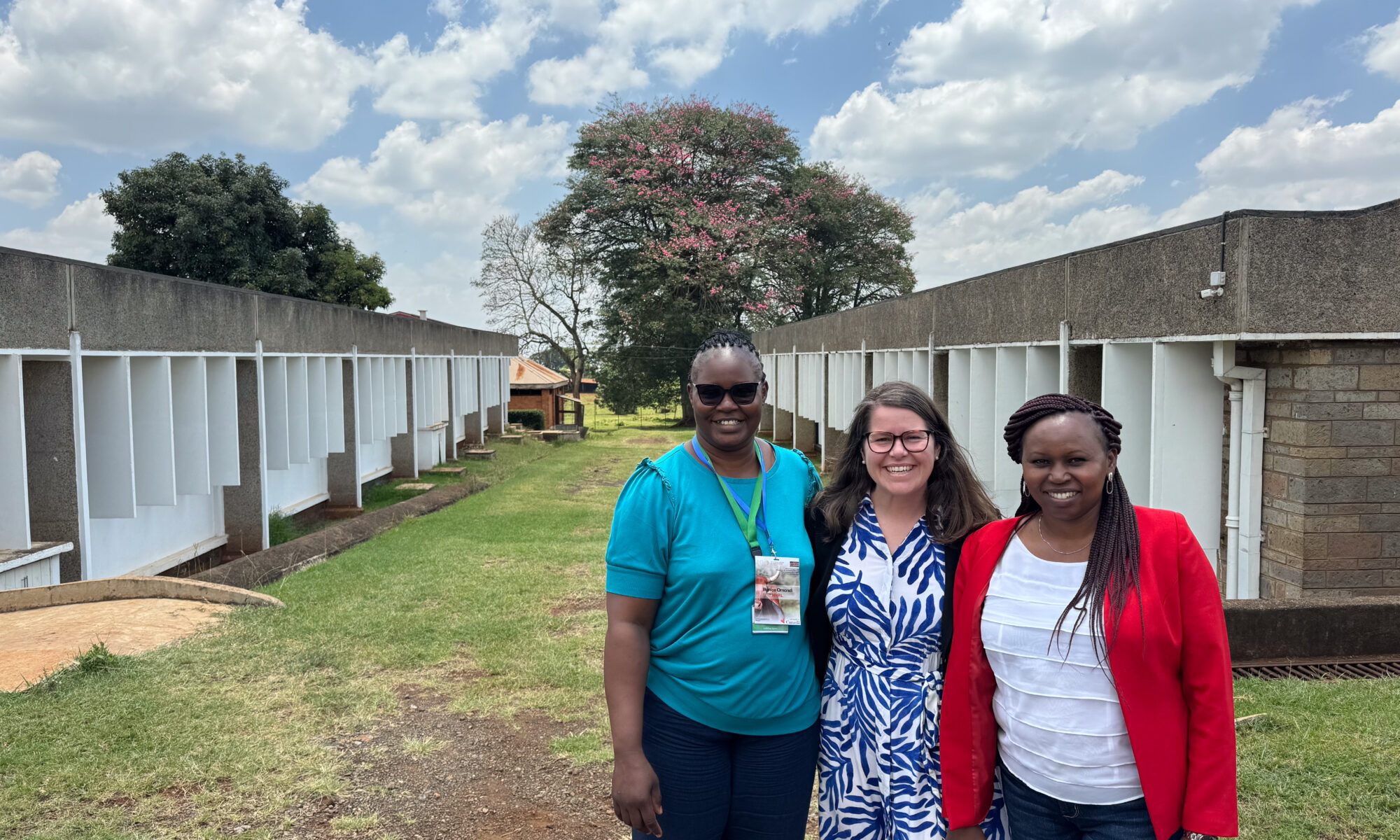
By Mary Shelley-Snell
In March, a delegation of University of Tennessee Institute of Agriculture (UTIA) faculty and staff traveled to Nairobi, Kenya for the final reciprocal visits with the USDA Foreign Agricultural Service (FAS) Scientific Exchange Program (SEP) and Faculty Exchange Program(FEP) Fellows. This group was hosted by the Smith Center and University of Tennessee College of Veterinary Medicine (UTCVM) in 2022. This delegation included Michelle Dennis, associate professor of anatomic pathology with UTCVM, Jennie Ivey, associate professor in the Department of Animal Science, Elizabeth Shepherd, assistant professor in the Department of Animal Science, Carrera Romanini, post-doctoral program manager at the Smith Center, and Troy Rowan, assistant professor in the Department of Animal Science. The focus of these exchange programs is on veterinary teacher pedagogy and animal health governance. While in Knoxville, the Fellows were matched with a UTIA faculty mentor, and they participated in the mentorship program, courses, and training to improve their teaching skills and knowledge. The program required faculty mentors to each conduct a reciprocal visit to see how their mentees have implemented what they learned during the program and to strengthen existing partnerships in the region.
Starting in Fall of 2022, the Smith Center and UTCVM have hosted three groups of USDA FAS FEP and SEP veterinary medicine Fellows. Improving veterinary education around the world is important to strengthen our global food system because of its strong effects on food safety and policy. “The impact of the knowledge the Fellows gain from these programs is magnified once they implement new practices, share resources with their professional colleagues, and increase their teaching effectiveness in their home countries,” Romanini said about the benefits of these programs. “Exchange programs are also valuable to students, staff, and faculty on campus who are exposed to people and cultures from around the world. The relationships that mentors build with fellows are meaningful and have led to collaborations that extend beyond FEP and SEP.”
The FEP and SEP programs create opportunities for the exchange of knowledge within the discipline, build a foundation for global collaboration, and form connections that can have long-term impacts beyond the duration of the programs. “I was motivated by the opportunity to learn about different ways of doing things – approaches to shared challenges, or problems I have not yet encountered,” Dennis, explained about her decision to participate in the program. “I also realize how incredibly fortunate I am as an American in terms of the opportunity for professional development in my discipline, and I want to give back on a global level through sharing knowledge and experience where there is less opportunity.”
During the recent reciprocal trip, the delegation visited with the Fellows at their home institutions, Egerton University, University of Nairobi, and Directorate of Veterinary Services. They also toured their labs, met with university officials about future collaboration, and built on an existing partnership with the International Livestock Research Institute. The group was also able to participate in cultural activities with the fellows such as visiting Nairobi and Lake Nakuru National Parks, going to the National Museum of Kenya, and spending time with the Fellows’ in their homes.
“It always strikes me how the work that we are doing here at UTIA is applicable in systems around the world,” Rowan said when considering why international engagement like this is important. “Beef production looks very different in the U.S. than it does in Kenya, but their challenges are not so different from ours. This means that the solutions that we develop here can have impacts beyond Tennessee and the U.S.”
While some impacts of these programs are already evident, there’s much more that will be accomplished as these Fellows progress in their careers and continue to educate the next generation of veterinary professionals in Kenya. Dennis observed that her mentee, Evalyn Mwihia, emphasized how her participation in the FEP Program is already affecting students at her university. “She expressed excitement to implement new teaching strategies learned in the master teacher program, so it seems that there has been a positive impact on teaching improvements at Egerton vet school,” Dennis said.
Incorporating a global mindset is important for all departments within UTIA. There is always the possibility that the solutions our faculty are working towards finding every day could have an even greater reach. “It has changed how I think about the work that our lab does,” Rowan said. “As we ask questions and find solutions for Tennessee cattle producers, I have started considering what the wider impacts in the international community might be. My experiences have also allowed me to build relationships with an incredible network of scientists and producers around the world.”
UTCVM and the Smith Center are preparing to host two more groups of USDA FAS Fellows, one in Summer of 2024 and another in the following Fall. We look forward to seeing how these programs continue to build on the global engagement taking place at the Institute, while also fostering collaborations that have a positive impact on the future of veterinary medicine.
